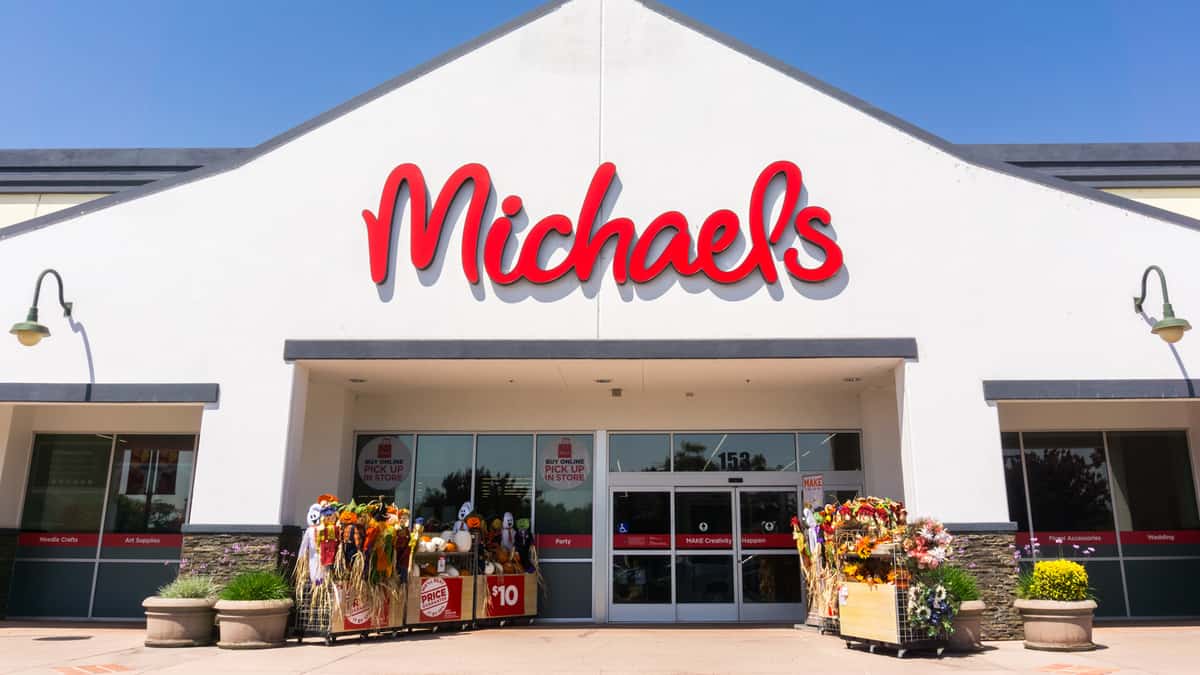
The pandemic crafting craze has gotten Wall Street’s attention. Michaels has a $5 billion buyout offer on the table as JOANN and Cricut are taking their businesses public at multibillion-dollar valuations.
On March 16, Apollo Global Management officially started the process to purchase Michaels at $22 per share in cash, a premium of 47% over the share price before the deal was announced. Apollo manages $455 billion in investments globally, including retailers GNC, Claires, and The Fresh Market.
Michaels has flipped between being a publicly-traded company and a privately held one a few times. It was founded in 1973 and then made an initial public offering in 1984. It remained a public company until 2006 when private equity firms Bain Capital and Blackstone acquired Michaels for $6 billion. And then in 2014, the company went public again, at a market value of about $3.5 billion, the New York Times reported.
“It’s not uncommon for companies to go from public to private to public again,” analyst Michelle Leder wrote at Bloomberg. Executives can use the time out of the spotlight to improve an organization’s financials. “But it does warrant a certain amount of skepticism when a company does so repeatedly,” she says, noting that the executives, banks, and lawyers overseeing the changes will earn millions no matter how the company fares.
A company like JOANN or Cricut will decide to enter the market to access new capital while the market is hot. The fact that a major competitor is going public while Michaels is exiting the market is concerning.
“When it’s a public company and it’s being taken off the market, that usually means that it’s not usually doing that well,” Forrester Research analyst Sucharita Kodali told Crunchbase. “If you’re at the height of your valuation as a public company, nobody buys you. It’s rare. It usually happens because somebody thinks there’s something that needs to be changed, or management needs an overhaul.”

Michaels’ 2020 fiscal results
This will be the last we’ll see inside Michaels’ finances for the time being. As a privately-owned company, they’re no longer obligated to make these quarterly financial filings. And because of the pending acquisition offer, the company didn’t host an earnings call.
Unlike Etsy’s massive growth in 2020, Michaels saw only a small uptick in sales during the pandemic year, reaching $5.3 billion in sales, an increase of 4.8% from 2019.
Of course, Michaels had to deal with widespread closures of its physical stores during the early stages of the pandemic. But sales rebounded enough by the end of the year that it paid workers a holiday bonus for the first time.
The Apollo acquisition
According to an SEC filing, representatives of the private equity firm started talking to Michaels’ board members in 2019 and 2020 about Apollo’s interest in an acquisition. Apollo eventually made a written offer of $18 to $20 per share in December 2020, which Michaels turned down. After the New Year, Apollo returned with an offer that was eventually negotiated up to $22 per share. Another investor, identified only as Party A in the filing, also expressed interest but eventually left the table.
Apollo saw “significant opportunity to enhance the Michaels brand, store experience and omnichannel offering to its customers across North America,” senior partner Andrew Jhawar told the New York Times.
In the terms, the company cannot cut wages or substantially reduce benefits for existing employees for one year following the acquisition. If and when the acquisition happens, Michaels executives and directors will be rewarded with cash payouts for their shares and stock options: Most notably, Buchanan will get more than $29 million and former CEO Mark Cosby $15.9 million.
The acquisition hinges on shareholders turning in their holdings at the proposed rate until an Apollo subsidiary, a company called Magic MergeCo, holds 50% plus one share of existing Michaels stock. The offer expires on April 12.
And others go public
But just days after Michaels announced its intention to go private, JOANN Inc. went public. The Ohio-based craft retailer was a public company until 2011 when it was purchased by a private equity firm for $1.6 billion. On March 12, JOANN completed its IPO on the NASDAQ, raising $130.8 million at $12 per share, a lower price than expected.
Going public gives us insight into JOANN’s business for the first time in a decade. In the form filed before the IPO, the company reported an estimated $2.8 billion in sales in 2020, an increase of 23.3% from the year before.
Cricut is also planning to make an initial public offering this spring, with shares listed at $20 to $22, which would result in a valuation of up to $5 billion. The Utah-based company said in its S-1 filing that its revenue in 2020 was $959 million, nearly double the previous year. Its total active users in 2020 also grew by 71.2% to 4.3 million people.

Grace Dobush
contributor
Grace Dobush is a Berlin-based freelance journalist and the author of the Crafty Superstar business guides. Grace has written about business and creative entrepreneurship for publications including Fortune, Wired, Quartz, Handelsblatt and The Washington Post.

So a hedge fund will overtake Michael’s and put it out of business, like the Toys R Us model. Profits for the shareholders above all else, and the business goes under and out of business. Is that what happened to Leewards, Treasure Island, Rag Shop back in the day, and more recently A.C. Moore? “Investors” are not content to have businesses available to consumers; they have to pick it until there is nothing left but bones.
I still have not recovered from my job lost in 2018 at Aaron brothers. After 8 years of being the head framer at a California location. Four Aaron brothers nearby locations closed that year and only one nearby Michaels location stayed open. They recently took down the Aaron brothers sign inside that nearby Michaels location and it’s now the simple “custom framing” sign again. The Michaels idea of online custom framing is calling ahead to make an appointment for a custom framing job and then bring in your artwork for framing instead of just walking in with your artwork as people used to do when there were stand alone brick and mortar Aaron brothers stores still in existence as my career used to be. I can’t help but feel that Wall Street investors played around with the company that I worked for and I lost my job because of their personal opinions.